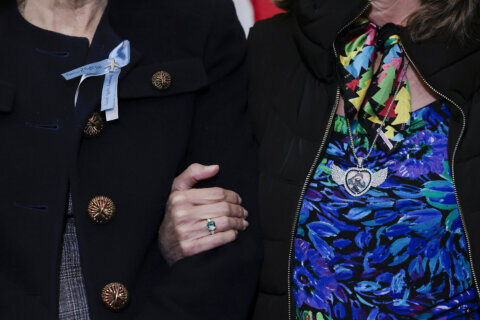WASHINGTON — Everyone agrees that Metro’s new 7000 series will replace the old 1000 series cars, but Maryland and Virginia disagree about whether extra 7000 series cars should help form all eight-car trains during rush hours.
All eight-car trains during rush hours is a major part of the Metro 2025 Momentum plan. Metro argues that all-eight car trains will ease the overcrowding on platforms, handling an additional 150-200 people per train.
Maryland thinks it’s too expensive to achieve and the focus must be on making Metro safer after incidents like L’Enfant Plaza.
“Would it be great to have all eight-car trains? It would be great. But we don’t have the funding as a region to continue on that path of Metro Momentum and maintaining the system we have in a state of good repair,” says Maryland Transportation Secretary Peter Rahn. “It would require huge investments beyond just the costs of the cars. It requires the power systems to be upgraded and fixing platforms. It’s not as easy as sticking two cars at the end of trains.”
Virginia thinks the investment is worth it and supports the Metro 2025 Momentum vision. The Northern Virginia Transportation Authority will approve almost $9 million for power system upgrades in FY 2015-2016. The total cost for Virginia is $424.8 million.
“This is a very significant investment in transit, but it’s not one that will necessarily bring about a solution overnight,” says NVTA Chairman Martin Nohe. “Under Virginia law, we are only allowed to invest in those transit projects that specifically expand capacity. We’re prohibited from investments in maintenance, repairs or anything that’s designed to keep the existing system in a good place.”
Fairfax County Board of Supervisors Chair Sharon Bulova disagrees with Rahn. She says it’s vitally important to get Metro up to a state of good repair, but there is also enough money to expand the system.
“I would like to remind folks that when Metro was first established, it was mostly built in the District and Maryland. Virginia is now receiving our expansions. So it would be a little unfair to say no more expansion when we were supportive of Maryland and their stations. I think they need to be understanding of the fact that Fairfax County and Northern Virginia also need to benefit from the Metro system,” says Bulova.
Both sides acknowledge the rift between the states on the future of Metro, but also express hope that they can find compromise.
“We have to make these partnerships work. We have to allow the Hogan administration to develop those relationships with us in Virginia to work on the long term,” says Nohe.
Rahn tells WTOP that he is willing to talk to Virginia and find the right balance to satisfy everyone in the region.







